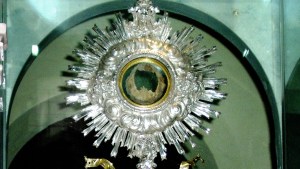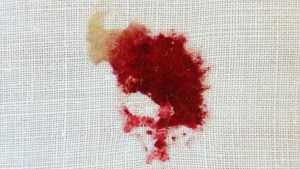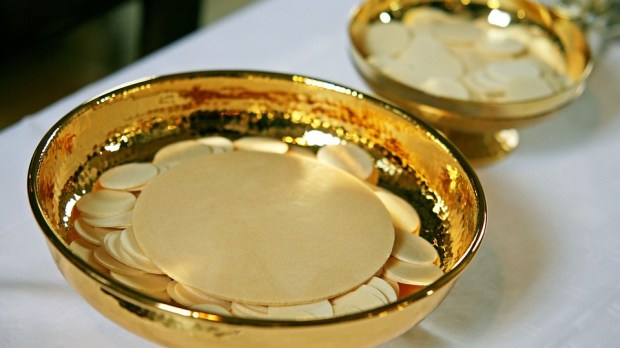Central Italy was rocked on October 30, 2016 with a 6.6 earthquake, devastating many towns, including the city of Arquata del Tronto. The parish church was reduced to rubble and only recently was the tabernacle finally retrieved.
What they discovered was truly “miraculous.”
According to the National Catholic Register, “The hosts, recovered from a tabernacle recently retrieved from the ruins of the parish church of Arquata del Tronto, have no bacteria or mold, as usually happens to hosts after a few weeks.”
The ciborium was on its side in the tabernacle and within it contained “40 hosts whose color, shape and scent were unchanged.”
The local priest described it as a “miracle.” While the local bishop urged caution over such a pronouncement, he did admit that the discovery needs “no words.”

Read more:
4 Incredible Eucharistic miracles that defy scientific explanation
The discovery of the hosts after such a long period of time is reminiscent of a Eucharistic miracle that occurred in another Italian town called Siena. The miracle happened on August 14, 1730 and according to reports, thieves infiltrated the basilica and stole the tabernacle containing 351 consecrated wafers. Three days later, all 351 hosts appeared in the alms box of the sanctuary of St. Mary of Provenzano, where they had been taken.
Over the years the hosts have showed no sign of corruption or decay. On April 14, 1780, the Superior General of the Franciscan Order, Father Carlo Vipera, consumed one of the hosts and found that it was fresh and uncorrupted. As some of them had been distributed in previous years, the Superior then ordered the remaining 230 to be saved and enshrined, and never distributed. To this day they remain in the Church and retain the freshness of the day they were made.
If the recent discovery in Italy is verified, it would be another Eucharistic miracle that has occurred in the past several years, such as the one in Sokolka, Poland in 2008.

Read more:
The stunning Eucharistic miracle of Sokolka

